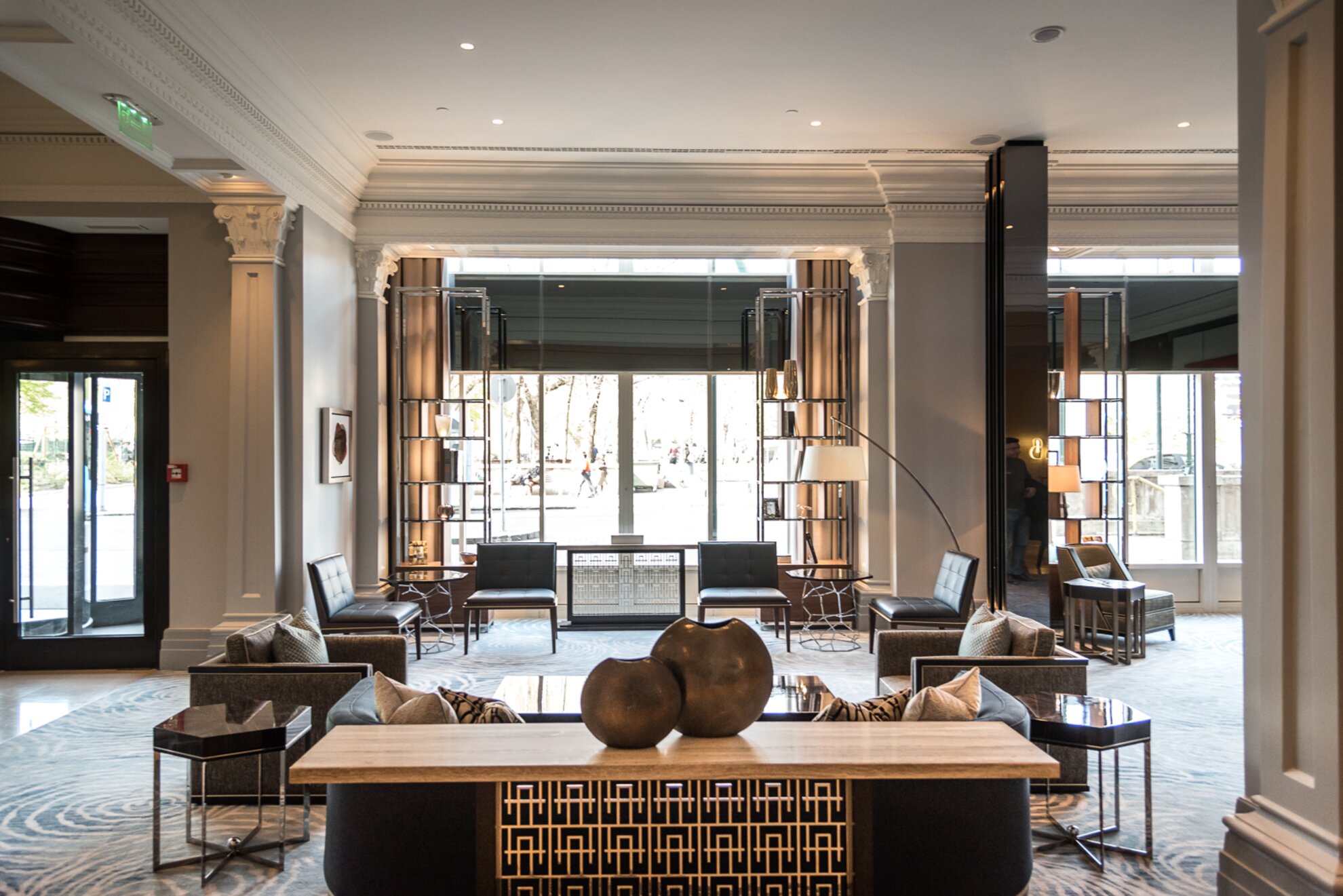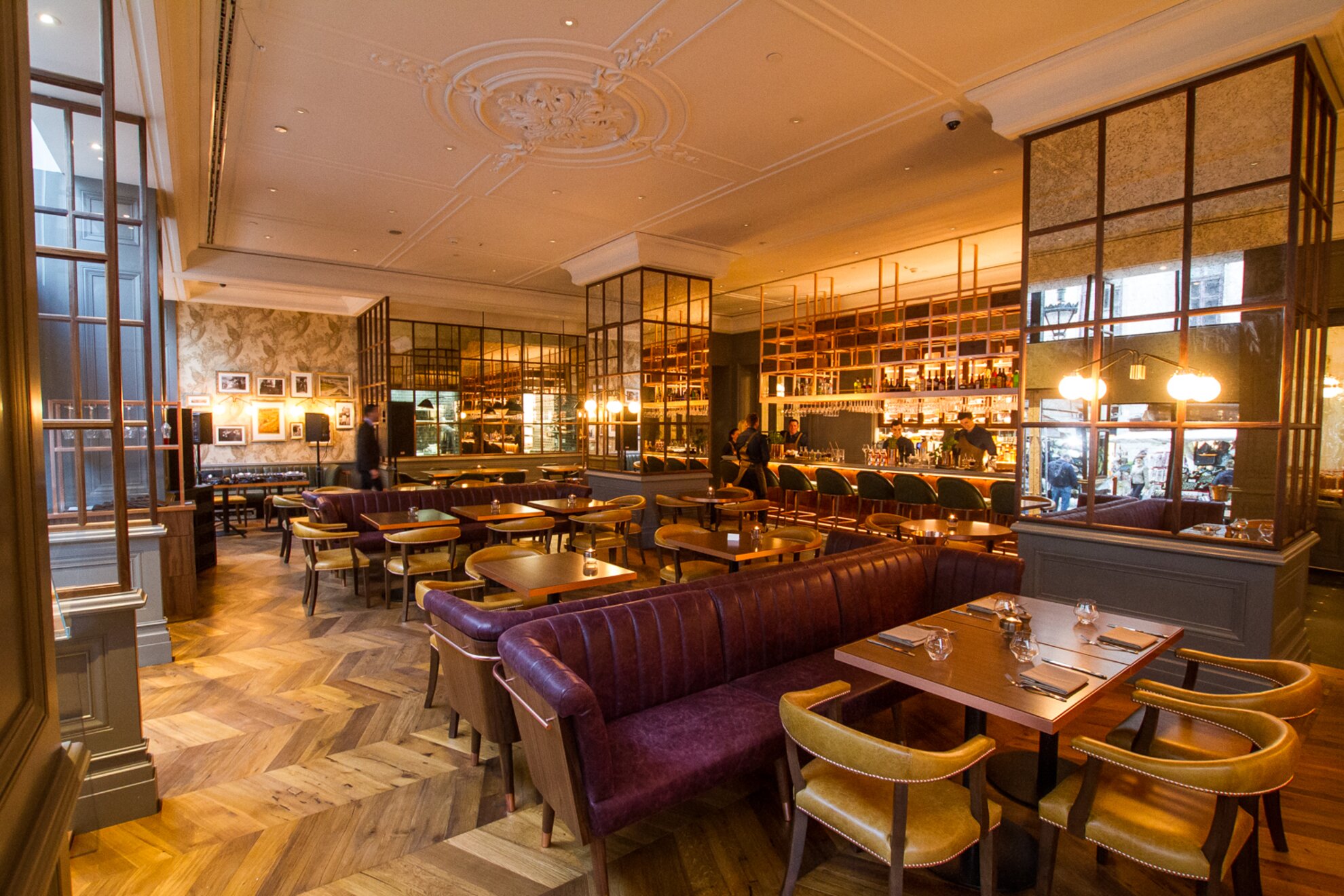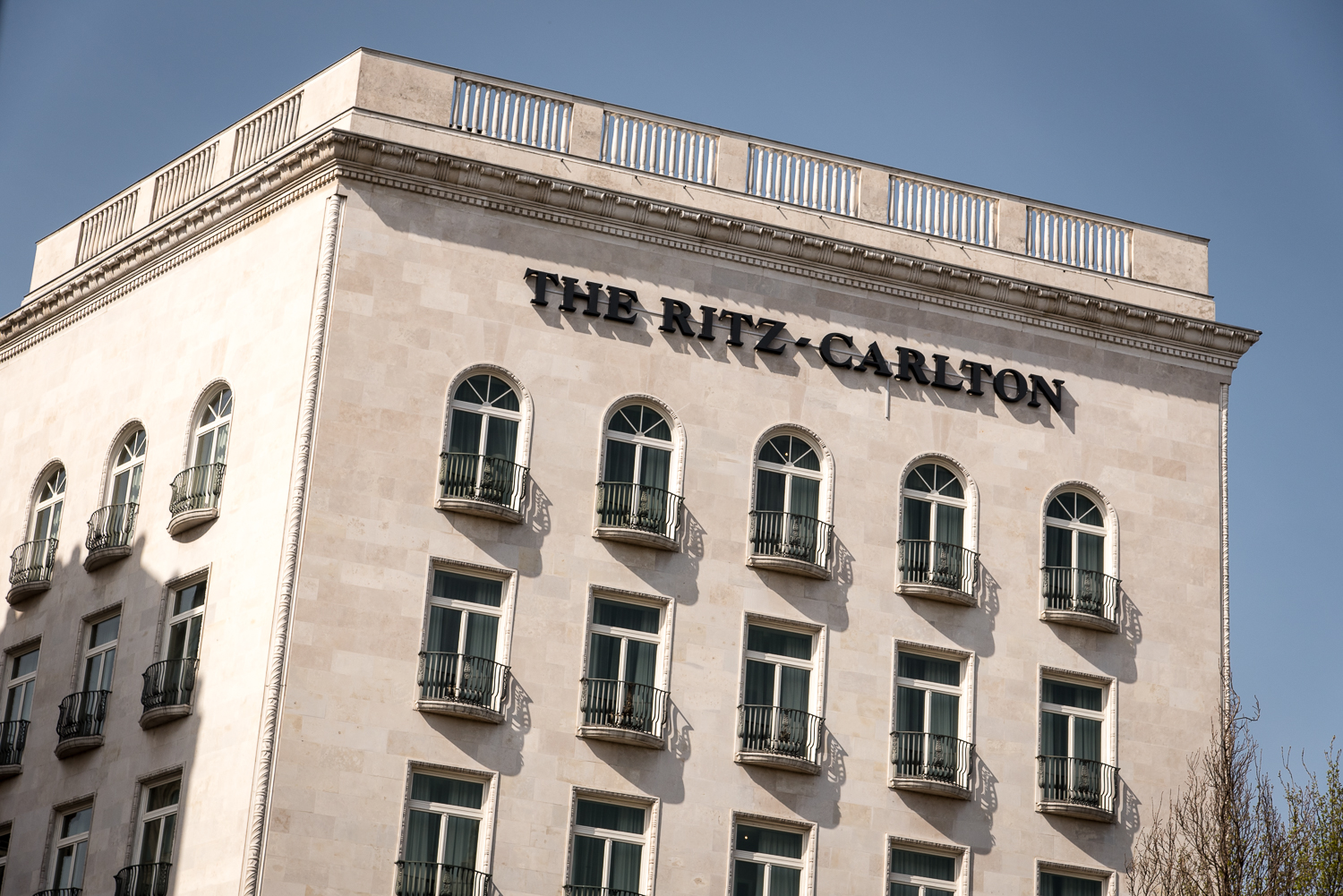Towering over the very heart of downtown Budapest since 1918, a gleaming-white limestone building now bears the world-renowned Ritz-Carlton name just under its roofline – this is the location of Budapest’s newest luxury hotel, providing yet another clear sign of the city’s growing esteem as a destination for international travelers of all budgets. However, in an exclusive interview with Ritz-Carlton Global Officer Bob Kharazmi, we learned that the hotel management is actively aiming for this establishment to become a regular destination for locals along with their global guests.
Located directly beside Pest’s central Deák Square and overlooking the recently rehabilitated Erzsébet Square parkland, the understatedly elegant urban palace that freshly houses Budapest’s Ritz-Carlton has an extraordinary history – originally built as a deluxe downtown office for the Adriatic Insurance Company, the building sustained extensive damage during World War II, only to be refurbished as the city’s police headquarters throughout Hungary’s era under Soviet control. After Hungary gained its independence, the building was restored to its original glory in 1998 to become Budapest’s five-star Le Méridien hotel, a role it maintained until last year’s announcement that this would be the site of Hungary’s first Ritz-Carlton property, called The Elizabeth Park Hotel.

With the new hotel now greeting guests during the soft-opening phase, the building’s most recent renovations are nearly complete, and to oversee the final preparations before next week’s grand opening, Ritz-Carlton Global Officer for Worldwide Operations Bob Kharazmi visited Budapest from the company’s American head office. Between his duties of supervising the redecoration’s final touches and meeting with local management and staff to personally impart the brand’s philosophy, Mr. Kharazmi met with We Love Budapest to explain how the goal for this new hospitality haven is to not only accommodate discerning international travelers, but to also warmly welcome local customers to enjoy the hotel’s varied amenities that are open to the public.

“We were delighted to have this opportunity. … For Ritz-Carlton, it’s a dream come true,” said Mr. Kharazmi of the company’s expansion into Budapest, while characterizing this move as a forerunner to the development of additional new Ritz-Carlton hotels throughout Central Europe, as the entire region experiences increasing success in international tourism. “Our growth is based on where people travel, because we want them to be staying with us.”

Citing Budapest’s many recent civic-redevelopment projects, flourishing cultural and gastronomy scene, and ample airline connections among reasons why the city appealed to Ritz-Carlton executive management, Mr. Kharazmi – who has worked for the luxury-hotel company since 1984 – believes that Budapest has reached a level of sophistication that makes it an appropriate setting for a grand Ritz-Carlton hotel. However, he is quick to emphasize that the company’s leadership does not want to impose a foreign spirit onto Hungary’s capital – the new hotel consciously reflects local aesthetics and history in both its appearance and amenities.

“When we go to any city, the local community is very important to us,” said Mr. Kharazmi. “We really, truly want to merge ourselves with the country’s culture. … Our success – any brand’s success – depends on how well we’re received within the community.”

The efforts taken by Ritz-Carlton to achieve this local acceptance are apparent immediately upon entering the hotel’s new lobby. With the interior created by Budapest’s branch of the international G.A Design firm, the entrance hall bears a comprehensive Danube River motif featuring light-blue carpeting with a rippling pattern, a curvaceous chandelier resembling a flowing stream, and decorative pillars representing the towers of Budapest’s bridges. Elements of this theme flow over into the hotel’s 170 rooms and 30 suites, while the Ritz-Carlton’s primary restaurant – the Deák St. Kitchen, established in cooperation with Budapest’s own Baldaszti Group – appears like one of the city’s classic belle-époque coffeehouses.

“We didn’t come here to say that we will do it our way – it’s a two-way street … we learn from the locals while we contribute to the community,” said Mr. Kharazmi, adding that as part of this approach the management is committed to offering quite reasonable prices at public Ritz-Carlton facilities like the Deák St. Kitchen and the Kupola Bar by the lobby. “We want to make sure our pricing not only provides quality, but brings in the local community. … For the normal Hungarian, we are not expensive. We want our pricing to attract locals, not drive them away.”

Meanwhile, for international Ritz-Carlton guests, Mr. Kharazmi believes that by having the hotel actively evoke a Hungarian atmosphere, their experience here will be more authentic and memorable, leading to the growing appeal of Budapest as a world-class destination. “Luxury is all about storytelling,” he said. “We want guests to have great memories of Budapest that they will go out and share.”

The Ritz-Carlton, Budapest officially opens on April 12th – keep reading We Love Budapest for more in-depth coverage about the hotel’s design and offers.




